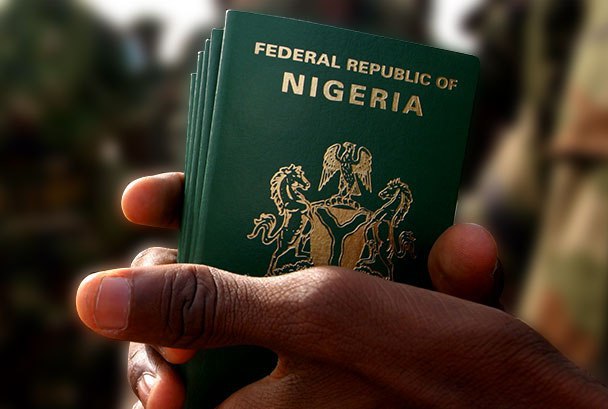
Time To Review The Nigerian Passport – By Usman Musa Ahmed
Travel document, popularly referred to as passport is a symbol and pride of a nation that every citizen would wish to hold with dignity. Most developed nations consider any one holding their passports as a treasure and it is for this reason, the procedure to obtain passport in such countries is meticulous and thorough.
This may not be the case with Nigeria, nationals of other countries were arrested with the Nigerian passports despite effort by the Nigerian Immigration service to periodically improve on the security embedded in the booklet.
Nigerian passport as a travel document was first introduced in the year 1948 after the Second World War and was then called the British West African Passport. Shortly after the attainment of independence in 1960 Nigeria changed the colour of the passport to a light green and the ministry of Foreign Affairs became the issuing authority.
In 1988, the authority to issue all travel documents in Nigeria was transferred to the Nigerian Immigration Service and in 1998 ten years after the issuance was transferred to the Nigerian Immigration Service, a significant change occurred with the introduction of Machine Readable Passport (MRP). The Machine Readable Passport is a computer based passport, it is significant because it presents a major shift from the hand written manual method which was characterized by fakery and imitation.
Certain deficiencies associated with MRP Passports compelled the Nigerian Immigration Service to again introduce e – passport on the 27th of July 2007. The e – passport as it is commonly called is officially known as the ‘’ECOWAS Harmonized Electronic Smart Passport’’.
With all the innovations and transformation of the booklet, it is still not free from being abused. This therefore necessitate for the Nigerian Immigration Service to as a matter of urgency introduce a new passport booklet with improved security measures to further check mate the activities of fraudsters.
Another area of concern is the activities of touts in many passport centres in the country, An organised system must be put in place to ease the process of obtaining passport thereby eliminating the activities of Touts. Nigerian Immigration Service could also borrow a leaf from some developed countries like UK, US and France, to establish what is called Passport Express Centres. These are centres where a prospective passport applicant can walk in and get his passport processed within a few hours at a fee. This will help to decongest our passport issuing centres.
Similarly in line with the global best practice, passport fees are applied uniformly as against the case in Nigeria where the children, old and middle aged Nigerians pay different fees. Passport is passport whether for old or young Nigerian. Abolishing this policy we believe will shore up the revenue base of the Nigerian Immigration Service for an efficient and better Service delivery.
Usman is a Public commentator lives at No. 87 Tukuntawa Quarters, Kano.






